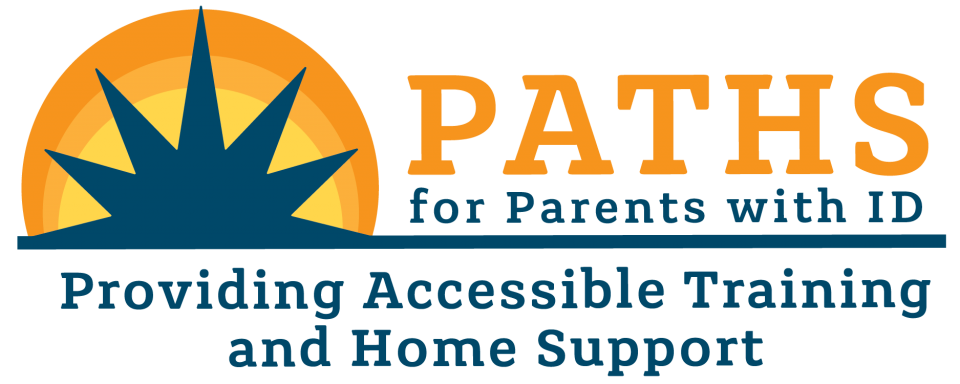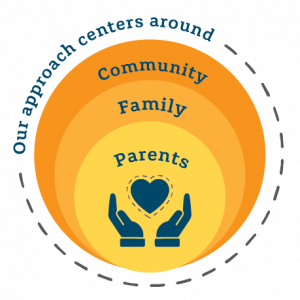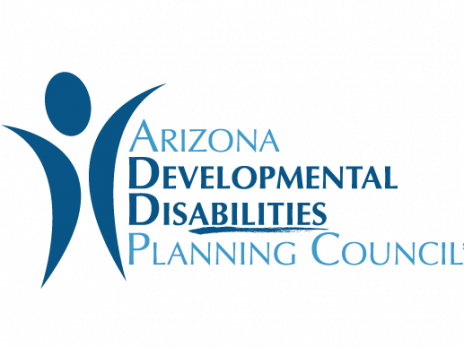PATHS

The PATHS (Providing Accessible Training and Home Support) for Parents with ID project collaborated with Arizona evidence-based home visiting programs to improve access to high-quality parenting support for parents with intellectual disabilities (ID) who have children under five years old. We have also partnered with Family Spirit, a national home visiting program developed for and with Indigenous communities as part of the John Hopkins Center for Indigenous Health. Through these partnerships, we have developed a free training series for home visitors to increase their ability to serve parents with ID.
4.1 million parents in the United States have disabilities (Li, Parish, Mitra & Nicholson, 2017). It is estimated that approximately 1.6 million parents in the United States have a cognitive disability (Sonik, Parish, Mitra, & Nicholson, 2017) although it is likely this number is under-represented and therefore higher.
Parents with intellectual disability are at a much higher risk for being reported to child protective services (CPS) (DeZelar and Lightfoot, 2021), for their children to be removed from the home (Lightfoot and DeZelar, 2016), and to have their parental rights terminated (LaLiberte et al., 2024) despite limited evidence that CPS involvement is necessary. The PATHS project aimed to address the inequities experienced by parents with intellectual disabilities by providing training to home visiting programs. Home visiting programs were chosen due to their evidence-based curriculum, in-home services, and access to vulnerable families. Training home visitors may decrease the likelihood of CPS involvement as well as provide individualized support to decrease health inequities experienced by parents with intellectual disability.
Training & Support for Home Visitors
The PATHS team developed and hosted two series of educational trainings for Arizona home visitors and other community health workers. Trainings provided information as to what intellectual disability (ID) is, common myths and challenges for parents with ID and implications for home visitors when working with parents with ID. Find the video recordings and slideshows in the “More Information” section below under the “PATHS Presentations” tab.
More Information
-
Project Status Update Tab Open
-
Resources Tab Closed
-
Handouts Tab Closed
-
PATHS Presentations Tab Closed
-
Glossary Tab Closed
Project Status Update Accordion Open
In the 2024-2025 project year, we:
- Updated and enhanced our three presentations based on feedback we received from the initial attendees
- Hosted a second series of three virtual training sessions for Arizona home visitors
- Partnered with Family Spirit, a national home visiting program for Indigenous communities to provide tailored training for their home visitors
In the 2023-2024 project year, we:
- Conducted 13 interviews with home visitors working in the state of Arizona
- Conducted a thorough literature review of home visiting programs and their modification of curriculum for parents with ID
- Designed and hosted a series of three virtual training sessions for service providers of parents with intellectual disabilities
- Presented our results at the 2024 IHD Evidence for Success Disability Conference and collaborated with other ADDPC-funded parenting projects to assemble a new conference strand, “Parents with Disabilities”
Resources Accordion Closed
The School of Social Work, Arizona State University
Supporting Parents with Disabilities – A User-friendly Guide for Social Service Providers
Training 1: Awareness and Basic Knowledge of ID
- Spread the Word
- Plain language guidelines
- Person-first language (NIH)
- Advice for Professionals Working with Parents with Intellectual Disabilities (Brandeis)
- Nothing About Us Without Us
- AZ Law 36-551.01
- Map of State Termination of Parental Rights Laws that Include Parental Disability (Brandeis)
- Revised Statute:Termination of Parental Rights
Training 2: Individualization of Care
Training 3: Tools and Resources
PATHS Presentations Accordion Closed
Video of recording of Session 1. Awareness and Basic Knowledge – October 1, 2024
PowerPoint Slides for Session 1. Awareness and Basic Knowledge – coming soon
Video of recording of Session 2. Individualization of Care – October 15, 2024
PowerPoint Slides for Session 2. Individualization of Care – coming soon
Video of recording of Session 3. Tools & Resources – October 29, 2024
PowerPoint Slides for Session 3. Tools and Resources – coming soon
Video of recording of Session 1. Awareness and Basic Knowledge – April 22, 2024
PowerPoint Slides for Session 1. Awareness and Basic Knowledge – April 22, 2024
Video of recording of Session 2. Individualization of Care – May 6, 2024
PowerPoint Slides for Session 2. Individualization of Care- May 6, 2024
Video of recording of Session 3. Tools and Resources – May 20, 2024
PowerPoint Slides for Session 3. Tools and Resources – May 20, 2024
Glossary Accordion Closed
- ID: Intellectual disability
- Home visiting: Home visitors provide assistance and guidance in various forms to parents with young children.
- Plain language: used to describe an idea in the simplest terms possible
- Universal design: The principle of designing a product to be accessible to all regardless of disability status or other factors
- ECHO model: Extension for Community Healthcare Outcomes (ECHO) modeled training sessions involve a didactic portion intended to verbally teach content to the audience, as well as a case study portion of real anonymized stories intended to invoke thought and discussion among attendees.
ECHO Model Accordion Closed
The Institute of Human Development will use the Extension of Community Health Outcomes (ECHO) model to provide free continuing education using an instructional and case study reflection approach through video conferencing.
Project ECHO: Are you part of the ECHO?
For more information, contact Dr. Sara Clancey at Sara.Clancey@nau.edu.

